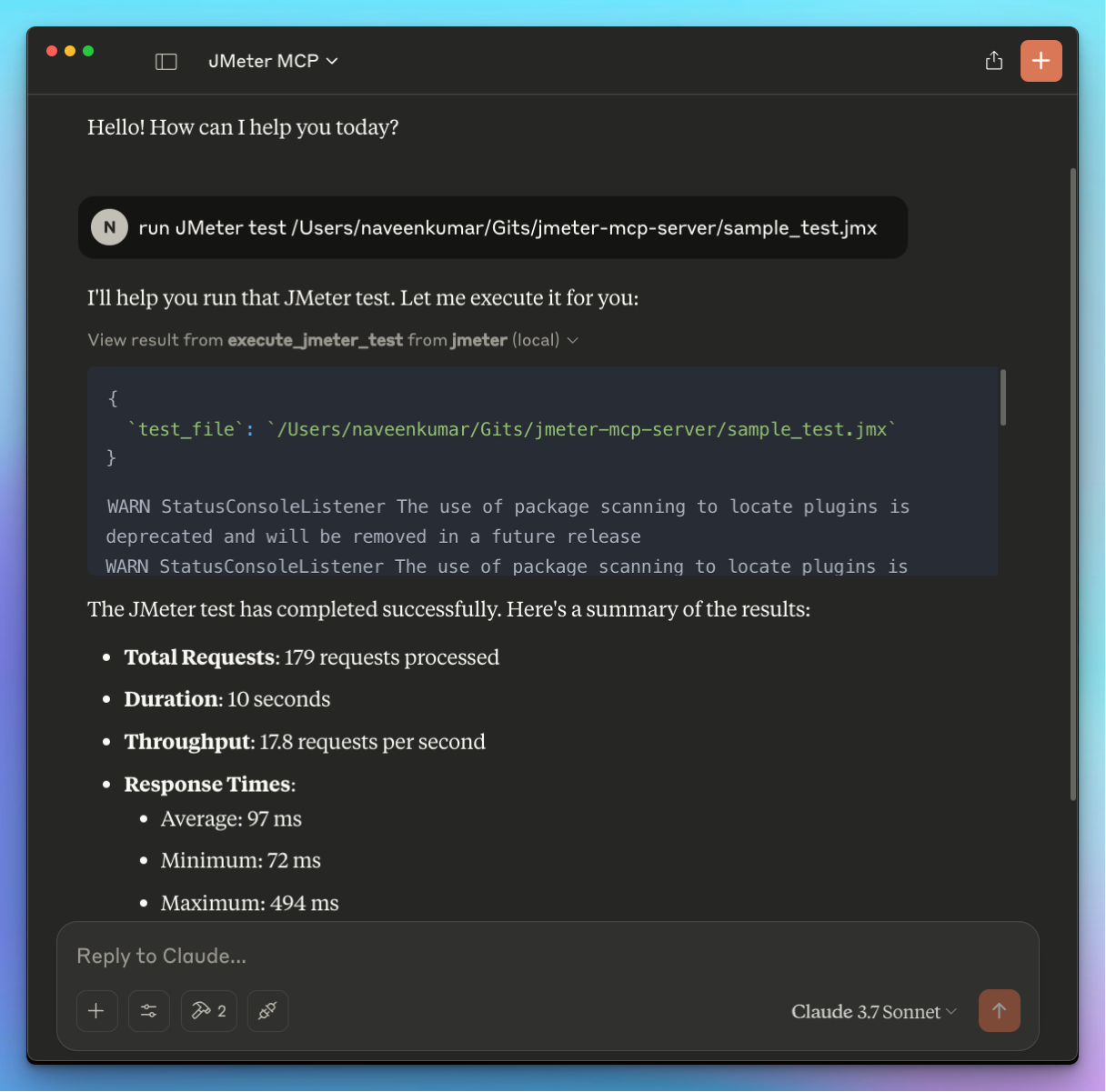🚀 Jmeter Mcp 服务器
✨ JMeter 与 AI 工作流相遇:介绍 JMeter MCP 服务器!🤯
概览
什么是 JMeter MCP 服务器?
JMeter MCP 服务器是一个创新的解决方案,它将 Apache JMeter 与 AI 工作流程集成,增强了性能测试能力。它允许用户以更高效的方式执行 JMeter 测试,利用人工智能优化测试场景和结果分析。该服务器旨在为希望简化测试流程的开发人员和测试人员提供服务,同时确保高质量的软件交付。
JMeter MCP 服务器的特点
- AI 集成:JMeter MCP 服务器利用 AI 算法分析测试结果,并提供帮助优化测试用例的见解。
- 用户友好的界面:它提供直观的界面,简化了创建和管理测试计划的过程。
- 可扩展性:该服务器可以同时处理多个测试执行,适合大规模测试环境。
- 实时监控:用户可以实时监控测试执行,允许立即调整和故障排除。
- 综合报告:该服务器生成详细报告,提供性能指标的见解,帮助团队做出明智的决策。
如何使用 JMeter MCP 服务器
- 安装:从官方仓库下载 JMeter MCP 服务器,并按照文档中提供的安装说明进行操作。
- 配置:根据您的测试需求配置服务器设置。这包括设置测试参数、AI 集成选项和用户权限。
- 创建测试计划:使用用户友好的界面创建和自定义您的测试计划。您可以定义场景、指定负载条件和设置性能指标。
- 执行测试:直接从服务器启动您的测试。AI 算法将实时分析执行情况,提供见解和建议。
- 审查结果:测试执行后,查看服务器生成的综合报告。利用这些见解优化您的应用程序并提高性能。
常见问题解答
Q1: JMeter MCP 服务器的主要目的是什么?
A1: JMeter MCP 服务器的主要目的是通过集成 AI 工作流程来增强性能测试,从而实现更高效的测试执行和分析。
Q2: 我可以使用 JMeter MCP 服务器进行大规模测试吗?
A2: 是的,JMeter MCP 服务器设计用于处理大规模测试环境,支持多个同时测试执行。
Q3: 使用 JMeter MCP 服务器是否需要费用?
A3: JMeter MCP 服务器是一个公共仓库,免费提供。然而,用户可能需要考虑与基础设施和其他工具相关的费用。
Q4: AI 如何改善 JMeter MCP 服务器中的测试过程?
A4: AI 通过实时分析测试结果,提供帮助优化测试用例和提高整体性能的见解,从而改善测试过程。
Q5: 我在哪里可以找到有关 JMeter MCP 服务器的更多信息?
A5: 更多信息可以在官方网站 jmeter.ai 和 GitHub 仓库 QAInsights/jmeter-mcp-server 找到。
详情
…
Server配置
{
"mcpServers": {
"jmeter-mcp-server": {
"command": "docker",
"args": [
"run",
"-i",
"--rm",
"ghcr.io/metorial/mcp-container--qainsights--jmeter-mcp-server--jmeter-mcp-server",
"python main.py"
],
"env": {}
}
}
}